How to Pack an Espresso Machine
Long-distance moving requires thorough organization, no matter if you are packing a small espresso machine or a bulkier one.
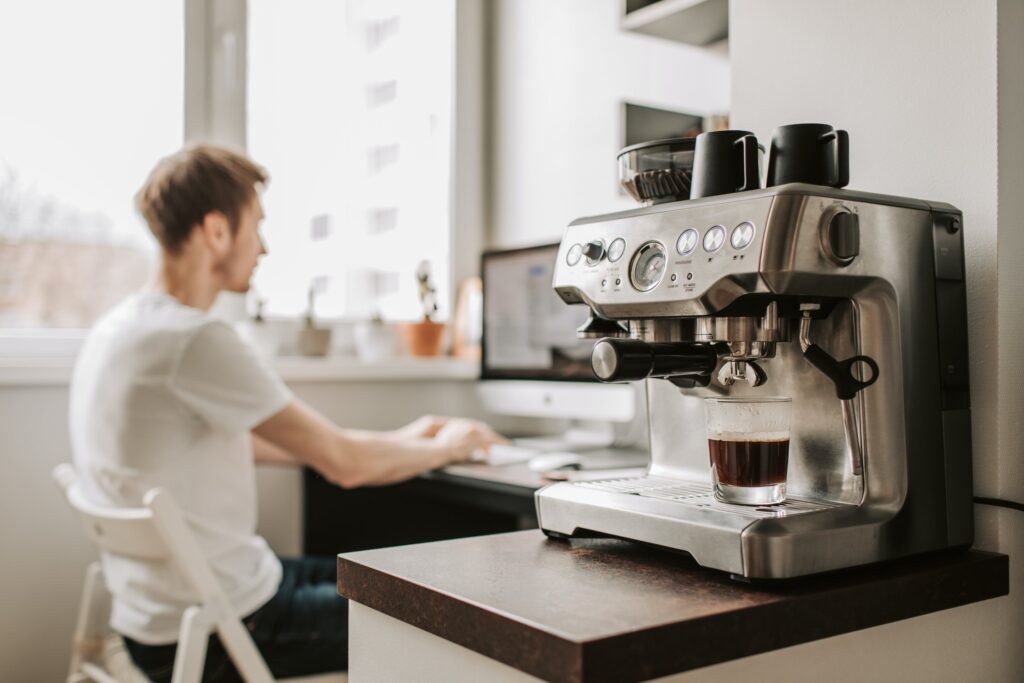

Can you imagine starting your morning without a good shot of daily caffeine? Neither can we! But how to pack an espresso machine and ensure its safe arrival at your new destination? Worry not, as we will guide you through this process, ensuring a smooth espresso machine transport. Let’s get started.
Long-distance moving requires thorough organization, no matter if you are packing a small espresso machine or a bulkier one.
However, with more than 70% of US citizens reaching for coffee daily, you understand how preserving this device is crucial.
The preparation phase involves everything from cleaning and disassembling to selecting quality supplies.
Carefully wrap and cushion each component and use the right box to ensure stability during transport.
Proper sealing and labeling will ensure that the crate is handled and loaded properly. Upon arrival, unpack the device and run post-transport checks and inspections for damages. If you find this overwhelming, consider hiring professional white glove movers for a job.
Before you begin the boxing-up process, it’s crucial to prepare your appliance properly. Start by giving your device a thorough cleaning.
Ensure that all coffee grounds and residues are removed and that each component is completely dry before packing. This prevents mold and unpleasant odors from forming during espresso machine relocation. It also ensures that your device stays in perfect condition after transport.
To ensure your kitchen item is ready for packing, conduct a series of pre-transport maintenance checks. Examine all hoses and connections for potential leaks and ensure that all seals are intact. Also, check that the water reservoir is emptied. Moreover, now would be a good time to check the manufacturer’s guide for any specific instructions or recommendations for a safe relocation process.
These appliances often have delicate parts that require extra attention during the wrapping and boxing-up process. These components usually include a steam wand, hot water spigot portafilter, or dip ray. Recognizing these fragile items allows you to provide them with the additional protection they need.
Wrap them individually with bubble wrap or packing paper and consider double-padding for extra security. Paying special attention to these components ensures they are safeguarded against bumps and jostles, keeping your device safe and ready for use.
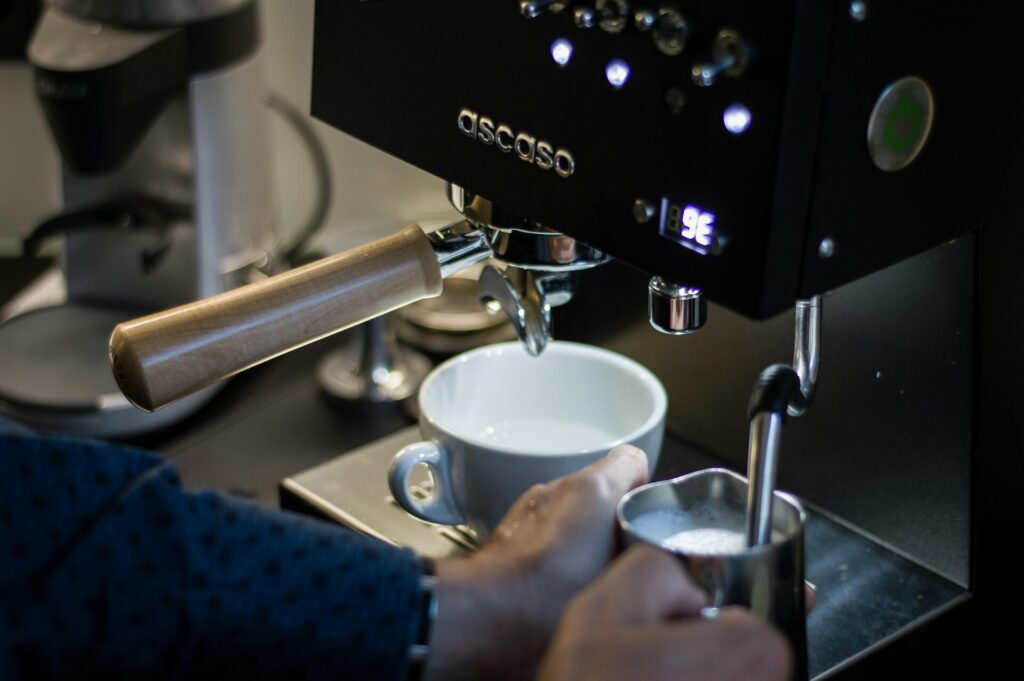
Selecting the right supplies is a critical step in ensuring the smooth and easy transportation of your possessions. High-quality packing materials act as a shield, protecting your device from vibrations and impacts.
Investing in the right supplies means your appliance is far more likely to reach you in the same condition as it left. Here’s a list of different packing materials that will make your relocation efficient and ensure secure espresso machine packing:
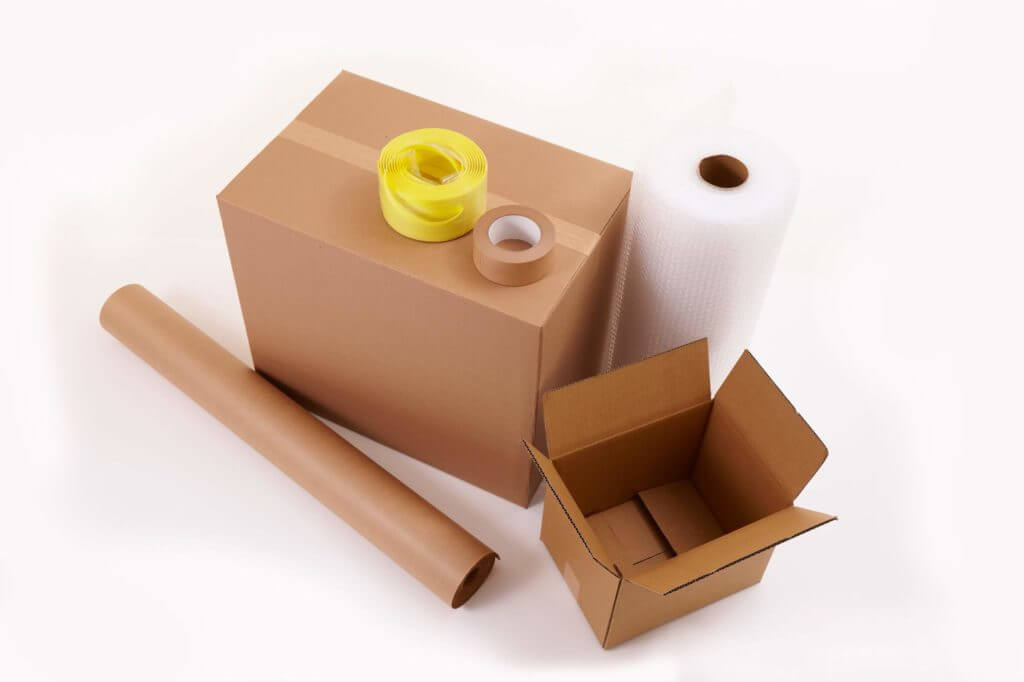
Packing the espresso machine safely is all about ensuring your cherished coffee ritual remains uninterrupted. Each step listed below is vital in preserving its integrity and functionality. Let’s go through them.
Consult the user manual for specific instructions on how to properly remove any detachable parts, such as the portafilter, drip tray, or water reservoir. Keep track of these components and handle them with care, as they are often delicate and easily forgotten, but crucial for the proper operation.
Once disassembled, focus on the main unit. Wrap it securely in bubble wrap, ensuring that all sides are covered and cushioned.
The wrap should be snug but not so tight that it puts pressure on its components. Tape the bubble wrap in place, making sure that the tape doesn’t come into direct contact with the device’s surface to avoid residue.
Each removable part should be wrapped individually. Use bubble wrap or foam sheets for each piece, and consider double-wrapping glass components. The goal is to ensure that these parts are insulated from shocks and vibrations.
If possible, utilize the original box. This crate is designed to provide ultimate protection during transit.
If the original packaging isn’t available, choose a sturdy box that’s slightly larger than your device, allowing room for sufficient cushioning. Reinforce the bottom of the box with packing tape for added strength.
Start by placing a layer of foam peanuts or crumpled paper at the bottom of the crate as extra safety. Carefully position the main unit in the center, and follow by placing individually wrapped components around it. Fill any remaining voids with more cushioning to prevent any movement.
Once your device is stored, close the box and seal it with high-quality tape. Reinforce all seams and edges to prevent accidental openings.
Use relocation labels to mark the box as “Fragile” and inform handlers of the contents’ delicate nature. Perform a final inspection to make sure there is no room for movement within the container.
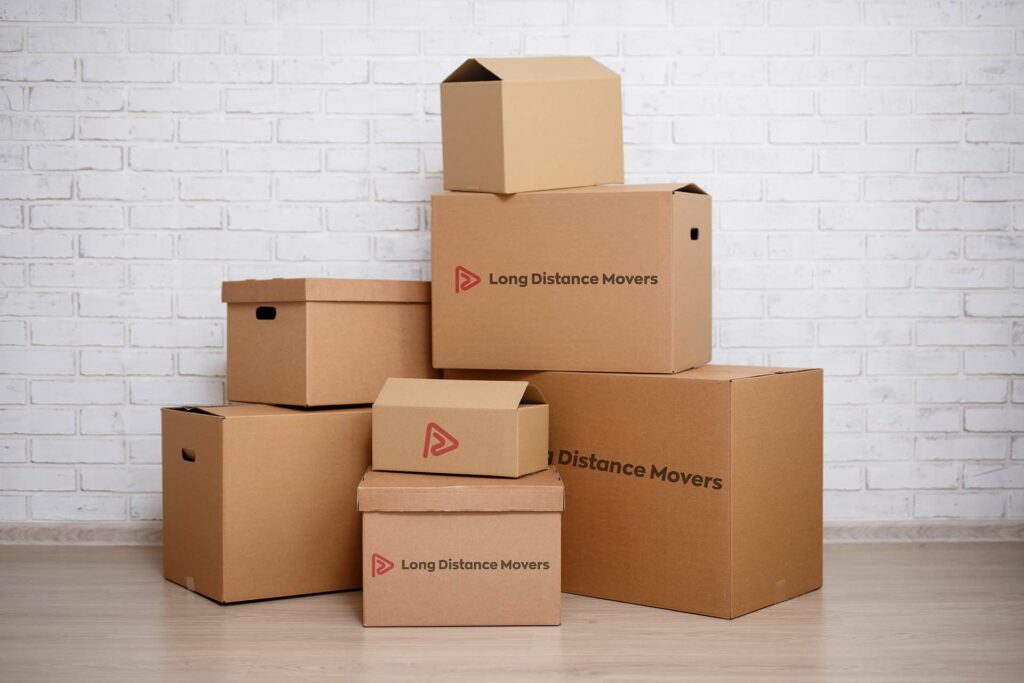
Incorrect handling can damage the machine and lead to injury. Start by assessing the weight and size of the package. Clear the path to the vehicle from any obstacles.
Lift the box by bending at the knees, not your waist, keeping the package close to your body. If it’s too heavy, ask for help or hire a white glove moving company to do it for you. Long Distance Movers have an experienced team that can handle all your belongings with care.
When loading your truck, secure the box against the wall to prevent it from sliding. Place the package strategically, ensuring that no heavier ones will fall onto your appliance during sharp turns or stops. This will keep your belongings safe during shipping.
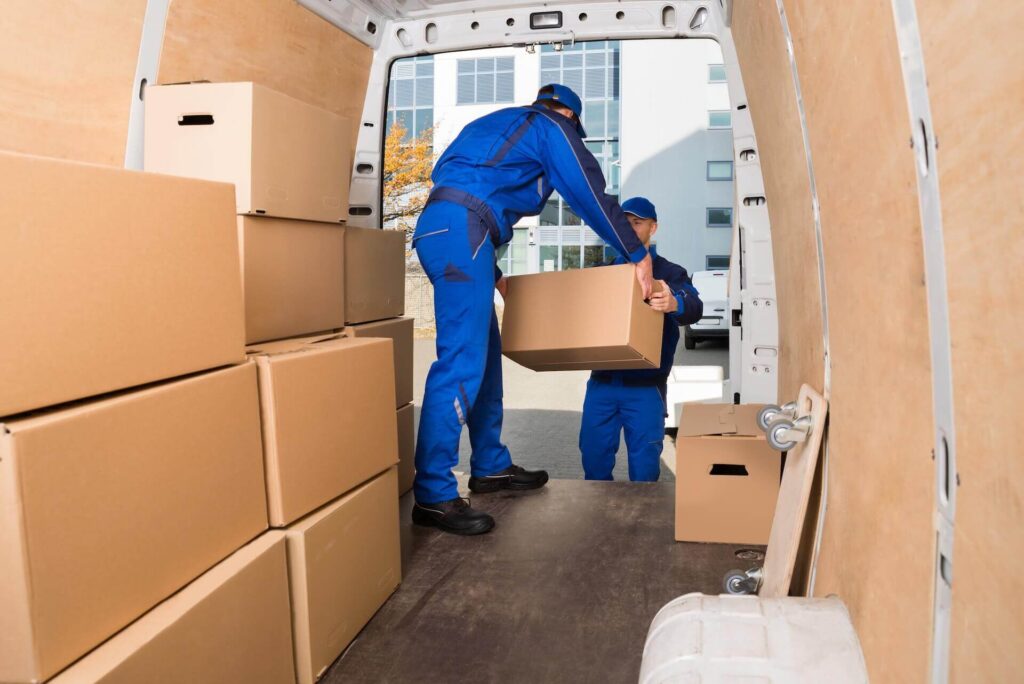
After your device has arrived at its new destination, the unpacking process requires just as much care and attention as the packing did. Start by gently removing the machine from the box, trying not to jostle or shake it unnecessarily.
Remove the protective layers and inspect each component for any signs of damage as you go. This careful approach will ensure that if you spot any potential issues, you have enough time to file the claim with your service provider.
Our spacious climate-controlled units will protect your things until the drop-off. No need to worry about them because all items are labeled and secure, and each customer gets a dedicated unit mixup isn’t possible.
Learn more Learn moreMove your car across the country in an open or enclosed trailer – for an affordable fee. We offer car transport as a standalone service, but you can bundle it with your household move and get a hefty discount.
Learn more Learn moreOnce your appliance is fully unpacked, it’s crucial to perform a series of post-transportation checks before you set it up for use. Reassemble your component, referring back to the manufacturer’s instructions or your notes and photo inventory. Ensure that everything fits back together correctly and securely.
Next, check the electrical cord and plug for any signs of damage. Then, run a test cycle without coffee to make sure that the water flows smoothly and the device works as expected. You are set to continue brewing your favorite coffee.

Handling such a complex task by yourself can be challenging and very tiring. That is why you should think about booking a professional assistant. Long Distance Movers have just the right tools and expertise in handling relocations of this nature.
Our long-distance moving services, which include top-notch packing solutions, will make your relocation experience a breeze. We come equipped with quality supplies and equipment to tackle your precious appliance and ensure its smooth transition. So, why not contact us today and book our white glove moving services on time? Make your relocation easier and let us handle the rest.
First, consult the user’s manual for specific disassembly instructions. Generally, you should start by removing any detachable parts such as the drip tray, water reservoir, and portafilter.
Ensure that all parts are emptied of water or coffee grounds and are thoroughly dry. Keep a note of each step and store small components like screws or brackets in labeled bags, so reassembly is straightforward.
Transporting your appliance without disassembling is not recommended, especially for long distances or bumpy rides. Disassembling helps protect fragile components and reduces the risk of internal damage.
Yes, there are risks of damaging the appliance in transportation, especially if it’s not packed properly. Physical shocks, vibrations, or pressure can lead to cracked components or loosened internal mechanisms. Minimizing these risks involves thorough padding, secure wrapping, careful handling, and ideally, disassembling any fragile parts.
To ensure your device is secure inside the box, use cushioning materials like bubble wrap, foam sheets, crumpled paper, or peanuts. Place a layer of padding at the bottom of the box, position the wrapped object in the center, and fill any empty spaces with padding. The device should not move when you gently shake the box. Seal the box securely with duct tape.
You can use your coffee maker after unpacking it, but it’s wise to perform a few checks first. Reassemble any parts, check for any visible damage, and ensure all components are secure.
Run a water cycle without coffee to ensure everything is working correctly. Once you’re confident that the device is in good operating condition, you can proceed with brewing your coffee.
This practice is generally not recommended. The reasons are primarily centered around the safety and preservation of your appliance. Firstly, the luggage doesn’t have enough structure and padding to provide the necessary protection. This could subject your device to strong impacts and vibrations.
These conditions are not ideal for delicate appliances, especially ones with intricate parts and mechanisms. We still recommend opting for the original packaging or adequate replacement in the form of a sturdy cardboard or wooden crate.